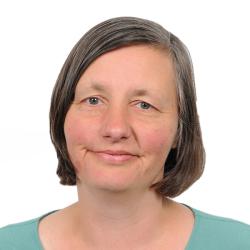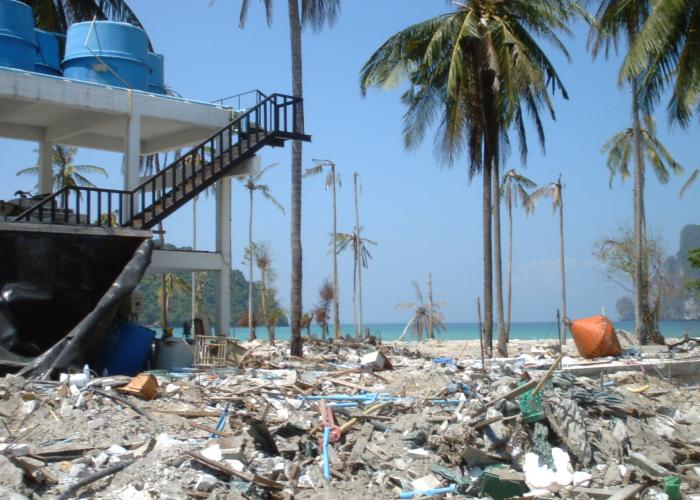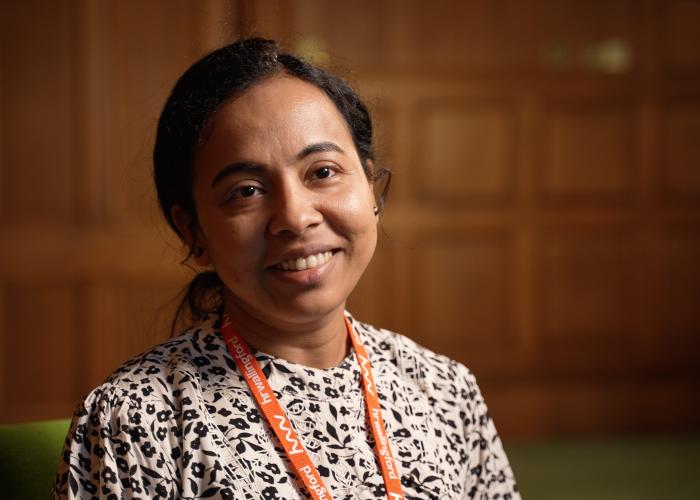Two decades after 2004 Indian Ocean Tsunami, experts call for dedicated facility
When world-leading scientists, engineers and disaster managers gather in London on 6 December, they will call for funding for a permanent tsunami research facility to improve future resilience to tsunamis.
Speakers at a symposium will present advances that have already been made in preparing the world for destructive tsunamis, kickstarted by the catastrophic 2004 Indian Ocean tsunami that hit Southeast Asia on 26 December 2004. However, they believe more can still be done.
Members of the Makewaves Tsunami Collaboration will explain how they wish to build on their success to date of generating a realistic tsunami wave at scale in a laboratory by building a dual generator that also simulates the deadly return wave.
The Makewaves Tsunami Collaboration was started by researchers and industry representatives from HR Wallingford, UCL, London South Bank University (LSBU) and Arup in response to the Indian Ocean Tsunami. They received the prestigious Hamaguchi Award last month in recognition of two decades of research on tsunami engineering that has influenced global policy and engineering standards.
At the symposium at the Institution of Civil Engineers on 6 December 2024, speakers will present research that has increased understanding of the science of tsunami, changed the design of buildings and infrastructure to mitigate tsunami effects, and improved preparedness actions are needed for communities to become more resilient. For example, elements of the 1st provisions of the tsunami code have been integrated into the building regulations in the USA through the recent ASCE regulation.
Entitled ‘The Indian Ocean Tsunami 20 years on: driving change and changing lives’, the symposium will be opened by Professor Anusha Shah, Immediate Past President of the Institution of Civil Engineers and Senior Director – Resilient Cities and UK Climate Adaptation Lead for Arcadis.
“We now know how, and are able to, simulate a tsunami wave coming into shore," explained HR Wallingford's Dr Ian Chandler. The next step is to develop a dual pneumatic tsunami generator which will allow scientists to study the wave as it goes back out to sea as well. The concept was proved in 2023, and now we would like to set up a permanent dual generator to serve as a hub for visiting researchers from around the world.”
Dr David McGovern and Dr Keith Adams from London South Bank University, who have both been involved from the start of the consortium, will speak about modelling long period tsunami waves and post event reconnaissance respectively.
Dr Adams, Lecturer in Construction and Project Management at LSBU, said: “As a community we wanted to remember the many people who died 20 years ago, in the worst disaster in living memory. This event pays respect to these people by explaining the lessons we have learnt and details just how much more work there is left to do.”
Professor Tiziana Rossetto from UCL Civil & Geomatic Engineering, who leads the Makewaves Consortium and first pinpointed the need for tsunami simulation after the Indian Ocean disaster, will be co-chairing the symposium together with Arup’s Ziggy Lubkowski, FICE and Professor William Allsop of William Allsop Consulting.
Professor Rossetto said: “The last 20 years have seen incredible advances in our knowledge on both tsunami as a natural phenomenon, as well as how we can design buildings and coastal infrastructure to defend communities from their devastating effects.
“This symposium, which sees some of the world leaders in this field coming together for the first time, will allow us to explore the remaining challenges in the field and provide a springboard for future research.”
The symposium is free for participants - in person at the Institution of Civil Engineering or via livestream. An evening drinks reception will cost £15.
For more event information, speaker bios, and to sign up to the event, go to: ICE website
Want to know more?



